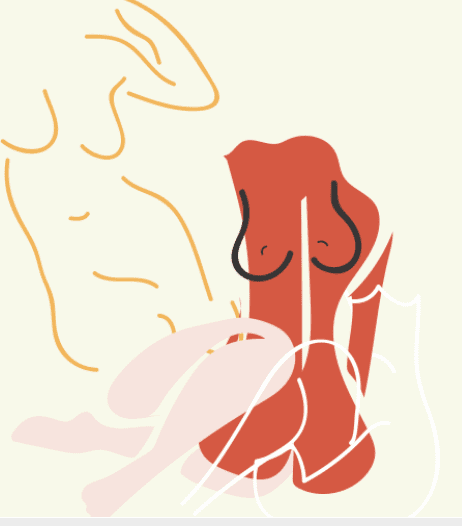Content Warning: Sex, Sex Work, Homophobia and Misogyny
The ANU Women’s Department hosted a zoom panel on Thursday the 14th of May on Sex and Sexuality Through a Critical Lens. The panel was moderated by the ANU’s Dr. Blair Williams and hosted panellists Tilly Lawless, Tina Dixson and Mish Pony. Together, they explored questions regarding the nature of modern sex and sexuality as well as how they are working to combat the misogyny inherent to these systems.
Tilly Lawless is a queer*, Sydney-based sex worker and an advocate for the removing the stigma surrounding the sex industry. She uses her experience and her platform to voice grievances and attempt to combat prejudice and discrimination within the industry. Tina Dixson is a PhD candidate and feminist academic who focuses on assisting the queer* community, refugees and women in Australia and abroad. Her work includes founding the Queer Sisterhood Project in 2018 with her partner Renee, which works to support and advocate for queer* refugee women in Australia. Mish Pony is a Sydney-based sex worker and representative of the Scarlett Alliance, Australia’s sex workers association. They have worked extensively with organisations concerned with assisting vulnerable member of the queer* community including Twenty10, an organisation which supports homeless queer* youth. The combination of the panellists provided an extensive set of experience on the subjects of sex work, combatting misogyny and homophobia as well as the pressing issues of modern feminism.
When asked about their biggest influences of their sex and sexuality, Pony highlighted the very positive impacts attending university had on their ability to explore and better understand themselves. They also pointed out that the unfortunate reality for queer* people is that they often have to find their own way, rejecting the impacts of underrepresentation and the perpetuation of normative culture. Ultimately, Pony said, sexual liberation has come in part from the freedom to express themselves. This was echoed by Dixson who outlined that the impacts of normative culture extend to areas such as the medical where one is assumed to be straight if they don’t look ‘queer* enough’. This type of tool is employed to devalue the queer* people and their experience and, according to Lawless, must be countered.
When discussing their personal relationship with the sex positivity movement all of the panellists agreed that while it had a distinct benefit, they all had issues with the movement. Williams commented that loving yourself is a life-long journey and that ultimately it should not be dependent on anyone but you. The most significant of these objections however was raised by Dixson, who argued that is can be very confronting for many queer* refugees and those from other cultures. The idea that one must be ‘so publicly sexual’ can be difficult for them to accept but that their positions must be none the less taken seriously. The emphasis on maintaining an active and exploratory sex life, Lawless commented, is often misguided as the only people who should decide what happens during sex are those who are having it. Culture is not a static thing, as Dixson said, and we must always consider one’s safety first.
Similarly, when discussing the intersectionality of sexuality and feminism, Lawless raised her objections to the modern, mainstream porn industry. As a queer* activist, she said, she felt a responsibility to project a positive image when participating in public sex, i.e. that which will be viewed by others. This included creating queer* porn for queer* people which acknowledges that porn is a fantasy and avoids fetishising an already marginalised group. Ultimately, Pony argued, there is no ethical way to consume porn but, by paying creators directly and ensuring that it is produced as ethically as possible, one can begin to negate its negative impacts.
Ultimately, the panellist agreed that while there is still much work to be done in these areas, they, and the community at large, are making progress. They continued that, while we may discuss these topics at length on panels, action is the best way to improve the quality of life of all marginalised people.
We acknowledge the Ngunnawal and Ngambri people, who are the Traditional Custodians of the land on which Woroni, Woroni Radio and Woroni TV are created, edited, published, printed and distributed. We pay our respects to Elders past and present. We acknowledge that the name Woroni was taken from the Wadi Wadi Nation without permission, and we are striving to do better for future reconciliation.
